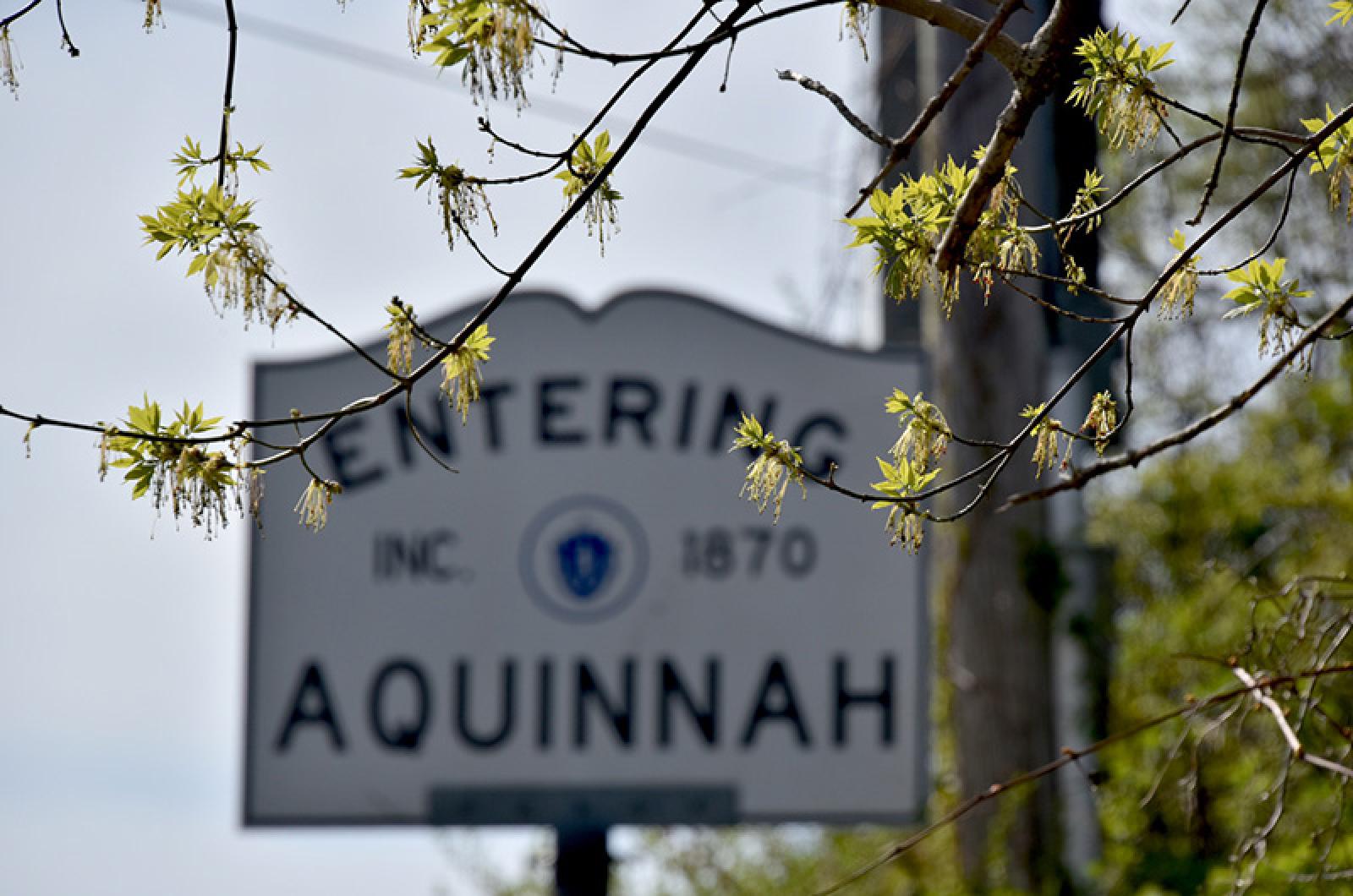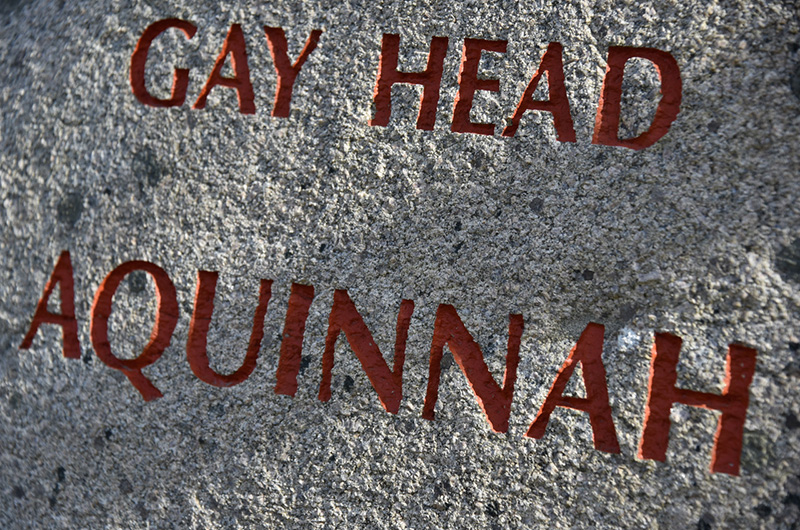Just over 20 years ago this week, the Island’s smallest town voted to rebrand itself. By a three-vote margin at the annual town meeting, Gay Head became Aquinnah, the area’s original Native American name.
The shift made national headlines at the time and today still tops lists of towns that have changed their names, right next to formerly Pile-Of-Bones, Canada, and Wineville, Calif.
Decades later, remnants of the old name still linger. On a drive through town, tourists pass by the Gay Head Community Baptist Church and the Gay Head Light on the way to the Gay Head Cliffs. Ask older residents where they’re from, and they often have to catch themselves when they respond.
“People who have been coming here a long time still call it Gay Head,” said Martha Vanderhoop, a tribal member who runs Hatmarcha Gifts up at the Aquinnah shops.
Ms. Vanderhoop said before the vote, many members of the tribe wanted to go back to the original name, especially since the tribe received federal recognizition in 1987. Older folks were less inclined and considered themselves “Gay-Headers” above all. Despite the nail-biting vote, she said there has been little pushback since.
“Once it was changed, people loved it,” she said.
The name Gay Head was incorporated by the town in 1870, but was chosen roughly 200 years prior after English settlers saw the craggy, colored cliffs on the headlands of Vineyard Sound and thought them “gay,” a term that meant something much different back then. The name Aquinnah, which means “land under the hill,” had already been used for centuries by the tribe to refer to the area. Town records show several residents over the years who were even named Aquinnah. The hill referred to is believed by many to be Peaked Hill in Chilmark.
The town made a failed attempt to change the name in 1991, but Carl Widdiss, a Wampanoag leader and former selectman, led the charge to try again in 1997, citing the importance of retaining the town’s Native American heritage.
“I think if you want to give proper recognition to the Native American history, the area should have a Native American name,” Mr. Widdiss told the Gazette in the run-up to the 1997 vote.
Residents agreed and voted 79-76 at their town meeting in May to make the new name of Aquinnah official.
“It was hard to get used to, but I think the name is beautiful and appropriate,” said Vera Dello Russo, an Aquinnah librarian who has lived in the town for years.
“I remember not being able to make the transition,” added her colleague Jennifer Burkin. “It felt like an artifice at the time.”
Over at the town hall, the new name meant an overhaul of the entire town map. Addresses had to be changed. State agencies had to be contacted. The town letterhead needed an update.
Aquinnah police chief Randhi Belain, an officer at the time of the name change, said there were many expenses involved in the transition, too. The department had to order new patches and new badges to adorn the uniforms of what is now the Aquinnah police force. He said that out on patrol, officers frequently had trouble when calling in with the usual codes over the radio, saying “G” for golf instead of “A” for Aquinnah.
“Everybody was slipping,” he joked. “We had to correct ourselves on radio calls.”
While the name Aquinnah has now become the norm for most residents, there are some who choose to hang onto the name Gay Head out of respect for the older generations. One of them is town administrator Jeffrey Madison, who was a selectman when the name change was first being considered. He said he was actually the one who investigated the possibility of a name change in the late 1970s, but his mind was changed by older tribal residents who were fond of Gay Head.
“They told me, we’re very proud of our name and don’t want to see it change,” said Mr. Madison. “It resonated with me.”
To this day, Mr. Madison continues to refer to the town as Gay Head as a way of remembering those who passed away before the change. He said there’s a lack of reverence for the town’s history and past generations in the town today, and he wants to do his part to keep the Gay Head tradition alive.
“I’m a Gay-Header,” Mr. Madison said. “There aren’t many of us left.”
A handful of tourists were spending a breezy spring afternoon on Tuesday perusing the Aquinnah shops and marveling at the views of waves crashing onto Moshup Beach. There was family visiting from Italy, timeshare owners from South Carolina and a father and son hopping over from Nantucket. None of them said they knew Gay Head was the former name of the town, though they agreed that giving the town a Native American name was a good way to respect the town’s tribal history.
Just down the hill from the lookout, tribal member Carla Cuch was behind the counter at the Stony Creek Gifts shop. She echoed that the new name took getting used to, but tribal members feel like they can call it by either name. She voted for the change at the 1997 vote and said that though there are people who still refused to call the town Aquinnah, it is the original and proper name.
“It needed to go back,” she said. “Culturally it’s the name of our town.”








Comments (8)
Comments
Comment policy »